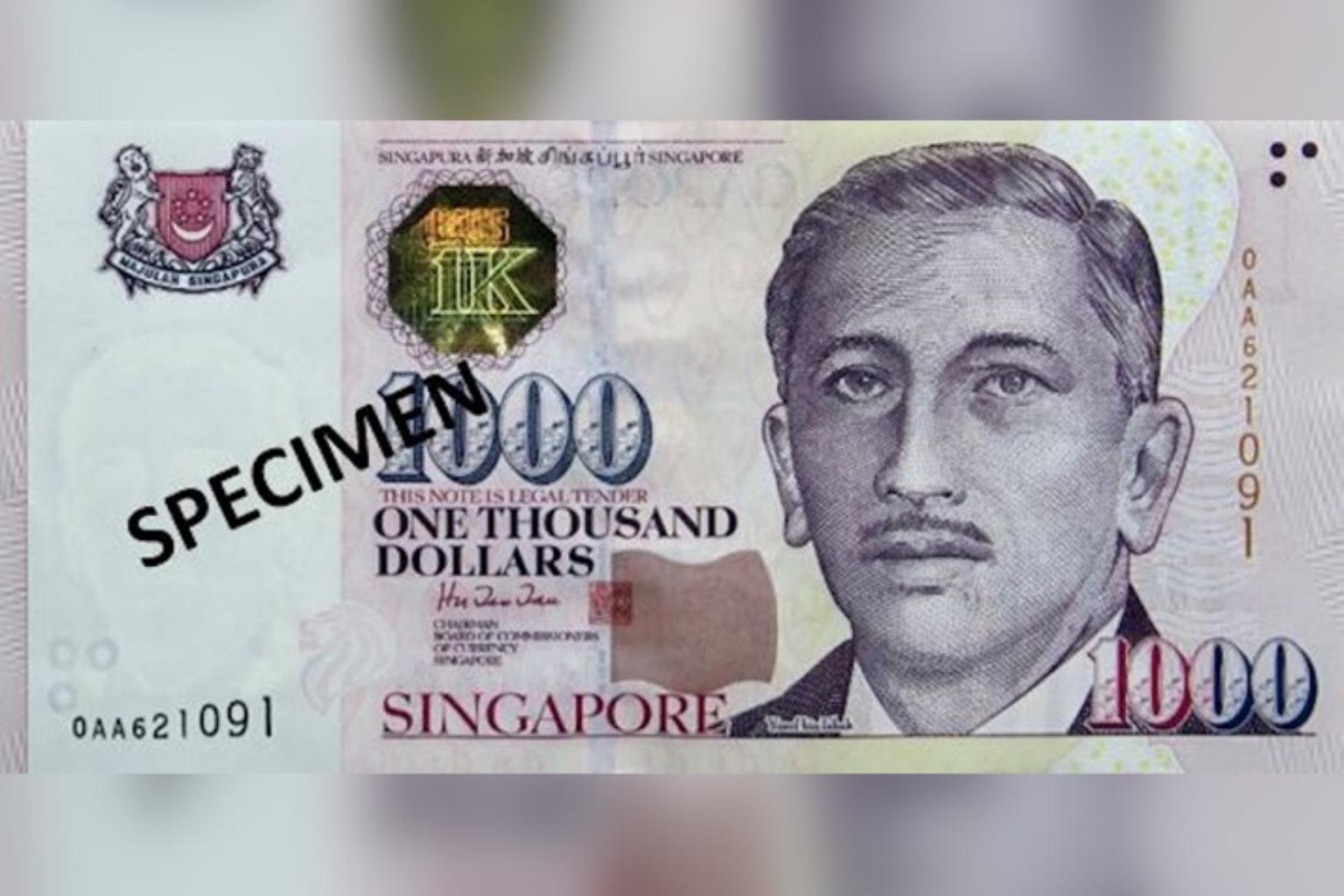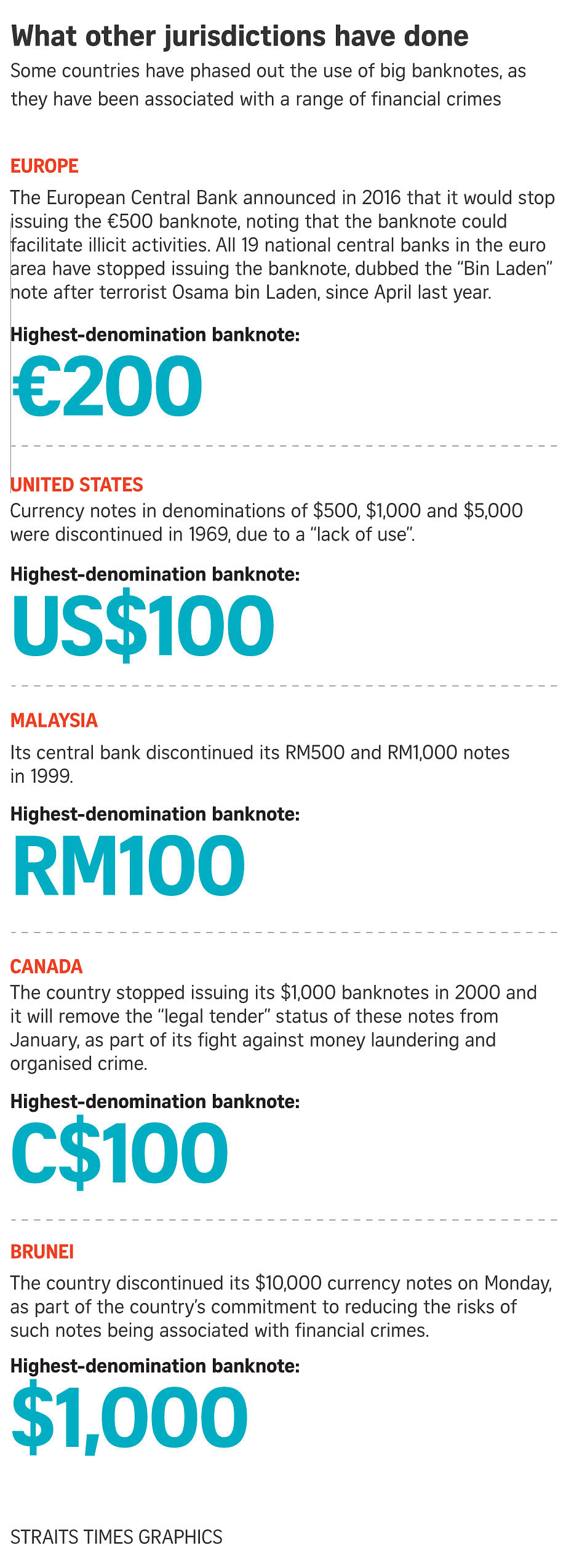MAS to stop issuing $1,000 notes over money laundering, terrorism financing concerns
Sign up now: Get ST's newsletters delivered to your inbox

Existing $1,000 notes in circulation can continue to be used for payment, and remain legal tender.
PHOTO: MAS.GOV.SG
SINGAPORE - The Monetary Authority of Singapore (MAS) will stop issuing the $1,000 note from January next year to minimise the money laundering and terrorism financing risks associated with such a large denomination.
From now till end-December, the MAS will also limit the quantity of $1,000 notes issued each month, although banks can continue recirculating the existing $1,000 notes that have been deposited with them, it said in a statement on Tuesday (Nov 3).
It added that it will "make available sufficient quantities of other denominations" to meet demand, in particular the $100 note, which is the next highest denomination after the $1,000 note.
Existing $1,000 notes in circulation can continue to be used for payment, and remain legal tender, said the agency.
In its statement, the agency also encouraged the public to use electronic payments instead of large denomination notes, which it said allows individuals to anonymously carry large sums of money, and can thus facilitate illicit activities like money laundering.
It stopped issuing $10,000 notes in October 2014 for the same reasons, noting that there is less need for high-value cash transactions, with the development of more advanced and secure electronic payment systems.
National University of Singapore's Associate Professor Lawrence Loh, who is director of the Centre for Governance, Institutions and Organisations, said electronic payment systems are still more secure than cash, despite the cyber-risks associated with e-payments.
"You are able to secure two things with e-payments, firstly, in terms of technical security, you can trace where your money is going, and second, you have physical security because you don't have to carry large amounts of cash," he said, adding that the move was timely, if not overdue.
He noted that most people here already do not use the $1,000 banknote, as there is "no reason" for transactions to be carried out in cash, instead of via cheques or bank transfers.

The agency noted in its release, that most major jurisdictions have also stopped issuing large denomination notes because of money laundering and terrorism financing concerns.
Prominent economists, including those from the International Monetary Fund, have advocated phasing out large-denomination paper currency to deter financial crimes, like tax evasion and corruption.
Currency collectors speculate that the price of the $1,000 note will likely appreciate with dwindling supply.
Banknote and coin buyer Laurence Lau, 64, said prices of the "nicer" notes, like those with auspicious serial numbers, could appreciate by as much as 5 to 15 per cent of its real value.
"The news will give a general market uplift to all the high-value denomination notes, which has been languishing for some time," said Mr Lau, who runs the Coins and Coins banknote and coin dealership.
"People have a strange mentality, they only want things in limited supply," he added.


